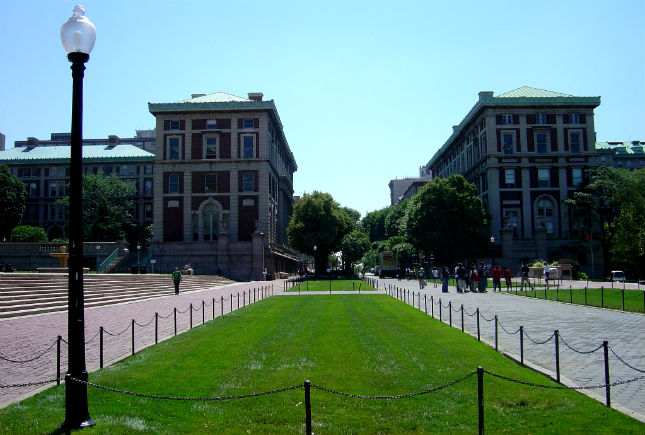 Here is the first Harlem business named who have parked their cash offshore or set up companies in farflung island nations to shelter their holdings.
Here is the first Harlem business named who have parked their cash offshore or set up companies in farflung island nations to shelter their holdings.
Nearly 500 people and companies with New York addresses turned up last week in a searchable “Panama Papers” database reviewed by The Post.
They range from moguls to art-world luminaries to an East Village psychiatrist and a University in Harlem.
The International Consortium of Investigative Journalists put out the database containing information on nearly 320,000 offshore entities from the so-called Panama Papers and Offshore Leaks investigations.
The data dump is just a fraction of the more than 11 million leaked files from the Panama-based law firm Mossack Fonseca, a leader in creating difficult-to-trace companies. Other data come from two additional companies that specialize in setting up offshore entities.
Offshore companies are often created in tax havens, such as the British Virgin Islands and the Caymans, used to hide assets from authorities around the world or to maintain privacy.
Last month, US Attorney Preet Bharara sent a letter to the ICIJ saying he had “opened a criminal investigation” regarding Panama Papers issues. Officials in Panama raided Mossack Fonseca’s offices there.
The ICIJ cautions that there are “legitimate uses for offshore companies and trusts” and it is not implying that anyone in the database has broken the law. But the group has said at least 36 Americans accused of fraud and other financial crimes appear in the data.
Columbia University
The Ivy League college’s Columbia Investment Management Company LLC, which manages the university’s endowment, is a shareholder in the Haton Polymer & Fibre Corp. located in the Cayman Islands. The university has not commented on the investment.
In addition, Columbia Journalism School is one of International Consortium of Investigative Journalists (ICIJ’s) reporting partners.
Five Journalism School students in a class taught by Professor Giannina Segnini are processing data, doing collaborative reporting with and advising ICIJ members on shipping-related records and stories.
Prof. Segnini is teaching a class called “Cross-border Investigations Using Data.” She is a data and investigative journalist who is also a member of ICIJ and has been involved in ICIJ’s multi-year investigation on offshore secrecy.
On Apr 5, 2016, WNYC reported that James Henry, investigative economist and lawyer and senior fellow at the Columbia University Center On Sustainable Investment and author of The Blood Bankers: Tales from the Global Underground Economy and the forthcoming The Pirate Bankers, said while the actions described in the documents are not necessarily illegal — a judicial body will have to make that determination — the practices are indefensible and prosecutors are investigating the documents. It also raises questions about why high level politicians and their associates stash money away in secret accounts and tax havens, a practice that became prevalent in the 1970s and 80s because of drug money and big Western banks participating in questionable Third World lending.
“Tax havens do not just happen,” Jeffrey Sachs, director of the Earth Institute at Columbia University, said in a statement to ABC May 9, 2016. “These havens are the deliberate choice of major governments, especially the United Kingdom and the United States, in partnership with major financial, accounting, and legal institutions that move the money.”
Become a Harlem Insider!
By submitting this form, you are consenting to receive marketing emails from: . You can revoke your consent to receive emails at any time by using the SafeUnsubscribe® link, found at the bottom of every email. Emails are serviced by Constant Contact








